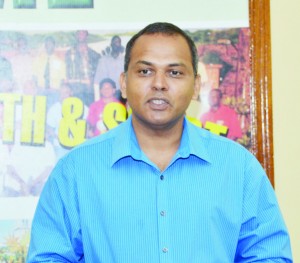
Guyana has backed calls for Europe to compensate Caribbean states for the inhumanity of slavery, saying the injustice had left a deep wound and the desire to right this wrong was a component of the anti-colonial struggle.
“Guyana agrees that we must look at this dark history in order to understand and move forward in the present. But apart from the duty to remember, we have the duty to ensure that just and appropriate measures are adopted to compensate for those wrongs,” Culture Minister Dr Frank Anthony told a regional conference on reparations being held in St Vincent and the Grenadines.
The conference, which opened last Sunday, is the first major event on reparations following the 34th Caricom conference of heads of government in Trinidad and Tobago in July.
At the summit, heads of government agreed to the establishment of a National Reparations Committee in each state, with the respective chairs sitting on the Caricom Reparations Commission. The community’s approach would be to hold a development conversation and to use all reasonable avenues to reach an amicable solution on reparations.
Atrocities
“As a Guyanese, and as a descendant of ancestors, all of whom were uprooted, transported and transplanted into an environment of atrocities and injustices, designed to maximise profits by plunder, I join with my brothers and sisters in voicing this claim for reparations,” Dr Anthony said.
He said Guyana also supported the call for an apology from those countries which benefited from the proceeds of the slave trade.
The Abolition Act of August 1833, abolished enslavement throughout the British Empire from August 1, 1834. From this date, there was to be a six-year apprenticeship for field labour during which the slaves would work for a fixed number of hours each week.
This apprenticeship period ended in 1838, two years early. British Guiana planters were generously compensated for the 84,915 Africans who were now free. The emancipated Africans received no compensation for their years of labour. “Not a single solitary cent,” Dr Anthony lamented.
He said the issue was openly discussed in the immediate post-independence era. Subsequently, a number of organisations, including Guyana’s African Cultural and Development Association, led the campaign for reparations and requested that President Bharrat Jagdeo add his voice to the reparations campaign.
“…. President Jagdeo responded in kind when in 2007 while addressing a commemorative ceremony for the bicentenary of the abolition of the transatlantic trade in captive Africans he observed: “Now that some members of the international community have recognised their active role in this despicable system, they need to go one step further and support reparation.”
In 2011, President Jagdeo in launching a year of celebratory activities commemorating the International Year for People of African Descent restated his support for reparations.



